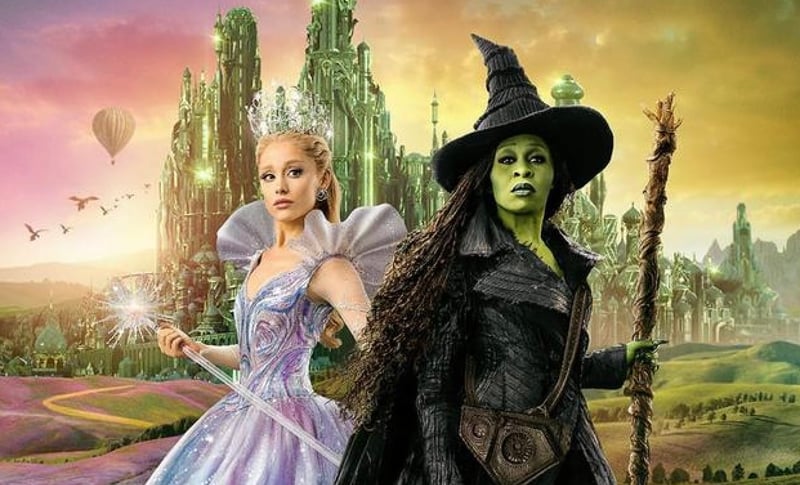
Much like Glinda, who asks at the start of the first film, “Are people born wicked, or is wickedness thrust upon them?” we are left with a question of our own: Are people born good, or must we advocate, march, and fight for goodness to prevail?
Spoilers Ahead
Last year, I wrote about the animal rights themes woven throughout Wicked: Part One and how they fuel Elphaba’s transformation, brilliantly portrayed by Cynthia Erivo, into a full-fledged rebel against the Wizard of Oz. It’s her unwavering belief that animals deserve kindness and dignity that gets her cast out, branded “wicked,” and pushed to the margins simply because she refuses to accept the status quo.
While Wicked: Part One showed the gathering storm facing Oz’s animals, Wicked: For Good drops us directly into the heart of the hurricane. Time has passed, and the once-vibrant society where animals could speak and participate fully has vanished. Their voices are silenced; their freedoms stripped away. They’re caged, chained, and exploited.
The film’s action-packed opening sequence makes this brutality unmistakable: animals who were once equal citizens of Oz now labor under the weight of chains, forced to toil in the construction of the new Yellow Brick Road. And then, bursting on the screen like a true superhero, Elphaba arrives to liberate them.
Whether it’s elephants chained and forced to carry tourists on their backs their entire lives, pangolins trafficked and killed for their scales, or mother pigs trapped in crates so small they can’t even turn around, we all recognize what animal exploitation looks like in the real world. And just like Elphaba, we know it’s wrong. We also know that speaking up for animals can be isolating—sometimes even putting us at odds with the people we care about most.
As Wicked: For Good unfolds, another striking moment shows animals—fully aware of the danger ahead—quietly leaving Oz. Here in our world, animals are disappearing too. A recent scientific report revealed that wildlife populations have plummeted by a staggering 73 percent in just the last half-century. Habitat loss, exploitation, and climate change are driving this collapse, and our broken food system is one of the leading causes. Like in Oz, human activity is pushing animals out—a haunting sign that all is not well. When animals thrive, the planet thrives. When they decline at the catastrophic pace we’re now witnessing, all life on Earth is clearly in peril—including us. This parallel is a sober reminder of the work ahead if we hope to protect our shared home. It’s also part of what inspired our Power of Animals campaign.
Throughout Wicked: For Good, many themes resonate, but it’s only when the chains are broken, the cages are emptied, and the animals of Oz are restored to their rightful place in the world that we see true hope return. The film’s animal message is so compelling that even actor Jeff Goldblum, who plays the Wizard himself, recently shared that he stopped eating animals after being moved by the story.
The animals of our world are in a deepening crisis, and that means our planet is, too. Much like Glinda, who asks at the start of the first film, “Are people born wicked, or is wickedness thrust upon them?” we are left with a question of our own: Are people born good, or must we advocate, march, and fight for goodness to prevail? If enough of us choose that path, we won’t just change the world for animals—we’ll change it for the better. We’ll change it for good.